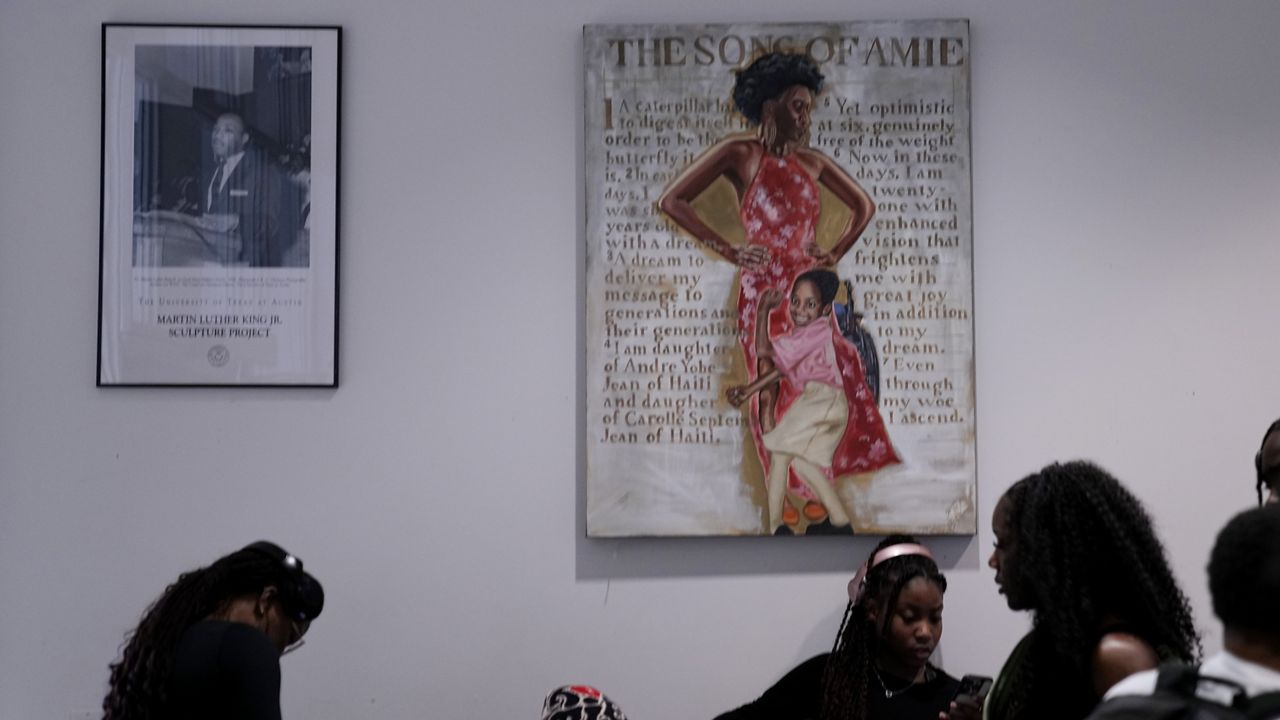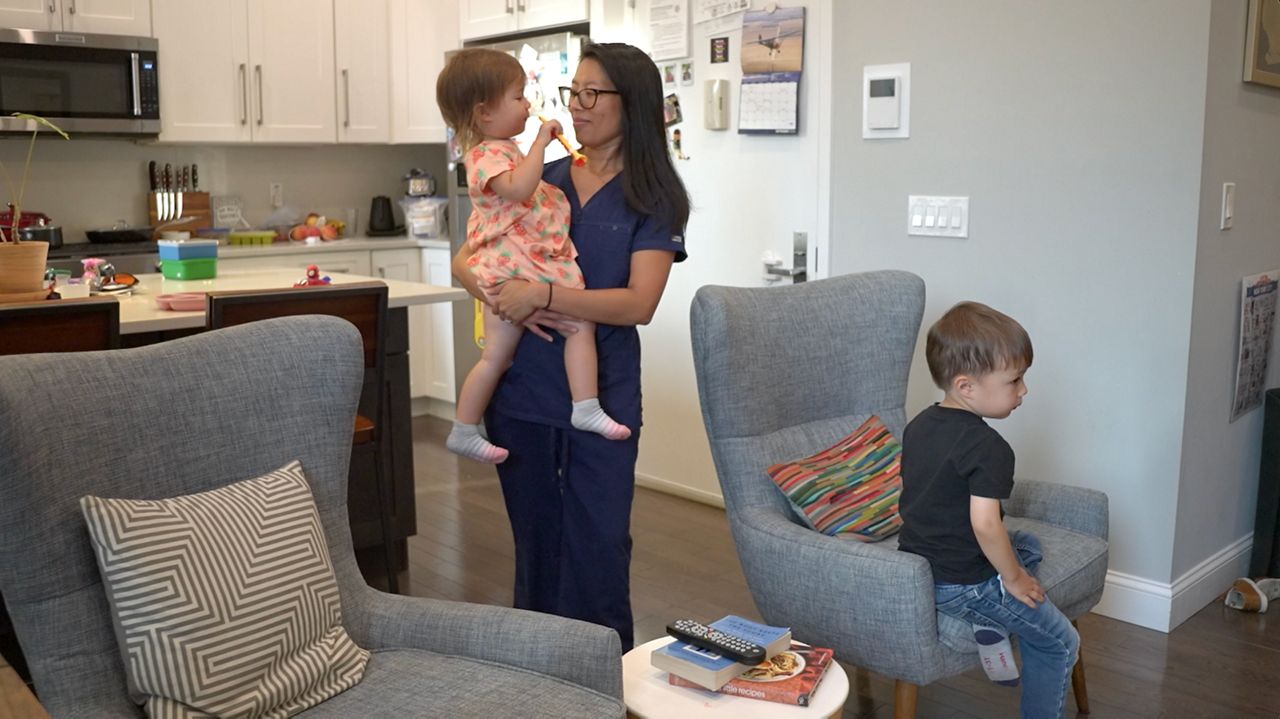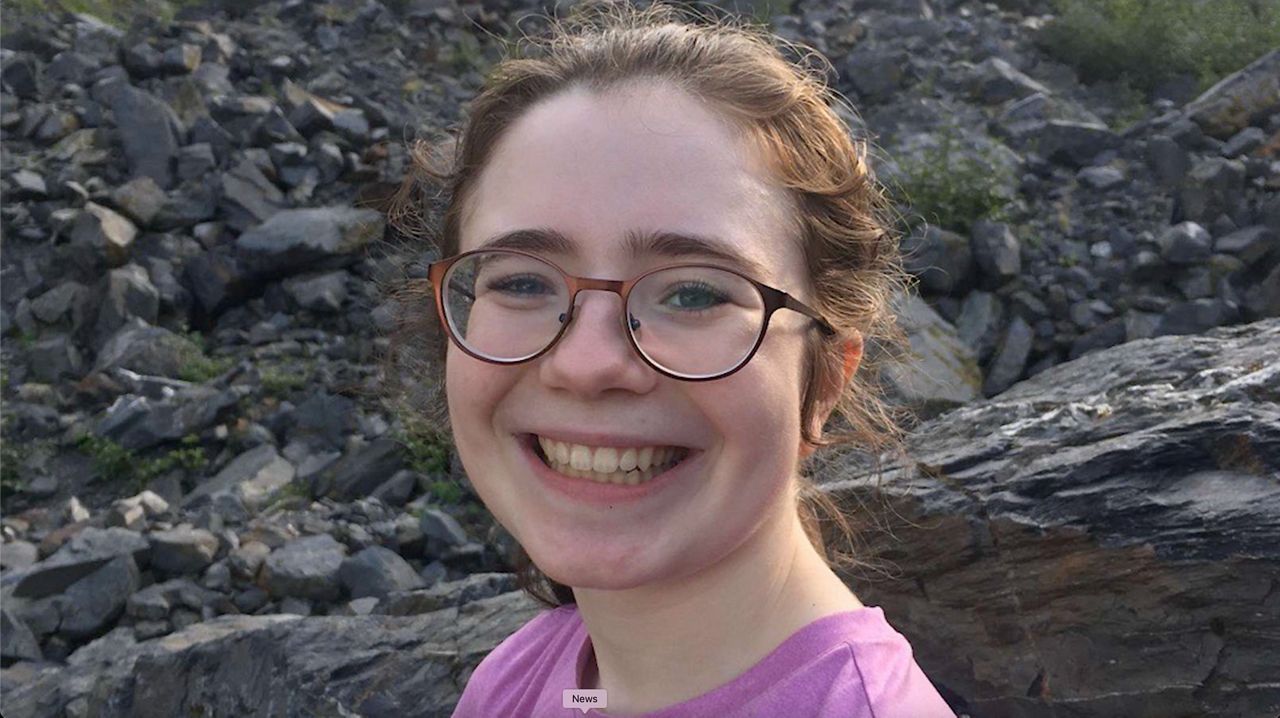When Mallory Kilmer moved to Hudson Yards in New York City three years ago, she was fulfilling a lifelong dream.
“It was just like an immediate, okay, this is where I, where I needed to be,” remembered Kilmer.
But there was something missing...a sense of community.
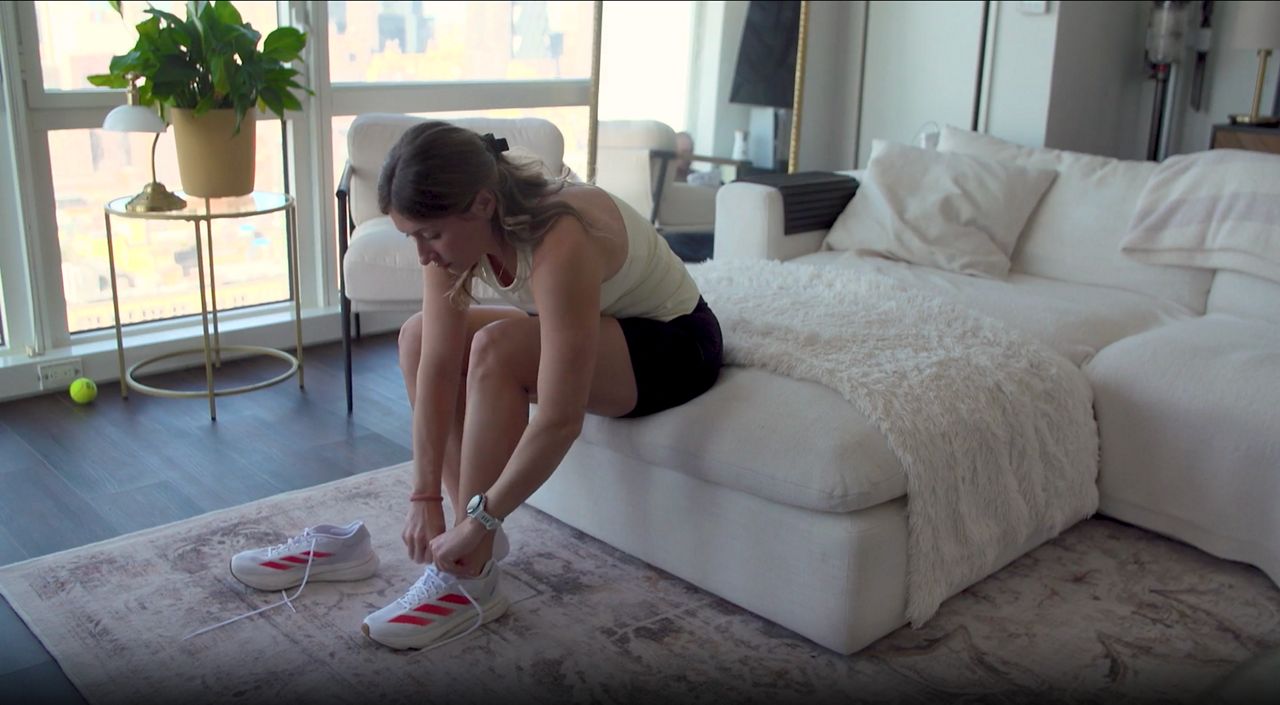
“What's interesting about moving is if you don't know anyone,” she said, "you feel really alone because no one just goes up to someone in the street and is like, ‘oh, I want to be your friend.’ That doesn't happen.”
Mallory is an avid runner, so the content creator took to Instagram, posting that she’d be in Central Park that Saturday morning if anyone wanted to meet up to run.
On the way to the park, she said she felt anxious. “I was like, oh my gosh, what if no one shows up?”
Six girls came to that first meetup – lingering over bagels and coffee afterward. They agreed to meet again the following week.
“So we met up the next Saturday. But we had 35 people show up. And then the following week – week three – we had over 100 runners show up,” Mallory said.
Two years later, hundreds continue to show up each week, and the club, appropriately named No More Lonely Runs, has around 9,000 members globally. Meeting up with the club is one of the highlights of Mallory's week.
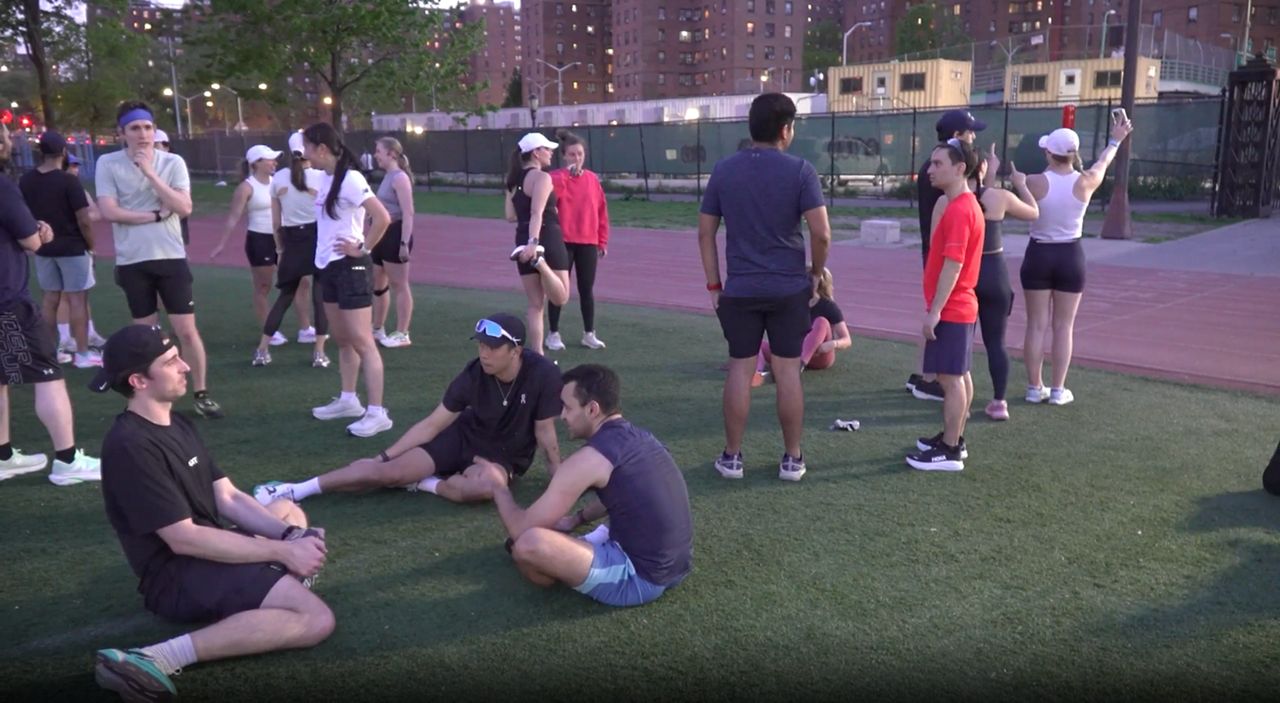
“Honestly, I feel like a little kid in a candy store, like walking into a candy store,” she described. “I get so excited to go to run club.”
From Saturday morning long runs to Wednesday night speedwork in the Lower East Side, the miles logged together have forged lasting connections.
“I have met some lifelong friends, people that I'll hang out with on the weekends now,” said Tara Brunner, another member of the club. “I've gone to friends' weddings that I've met from Run Club. We've gone on trips together.”
“I can't imagine in 10 years, not knowing these people,” said Run Club member, Max Faye.
And it’s not only friendships; Mallory says romantic relationships have been forged at the weekly meetups.
“When you go to things – whether it's a run club, or a pottery class, an art class, a music class, if you’re going to these things – you're gonna meet people that you resonate with, which is ultimately gonna lead you to your people, whether it is friends, platonic, or relationships.”
Finding meaningful social connections is vital to both our mental and physical health, according to psychiatrist Dr. Daniel Knopfelmacher, a psychiatrist at Weill Cornell Medicine and the host of the On the Mind podcast.
“In 2023, the US Surgeon General released a report on what they called an epidemic of loneliness and social isolation. And this report was done because it was deemed to be a major public health problem in this country,” said Knopfelmacher.
The research found that lacking social connection can increase the risk of premature death as much as smoking 15 cigarettes a day.
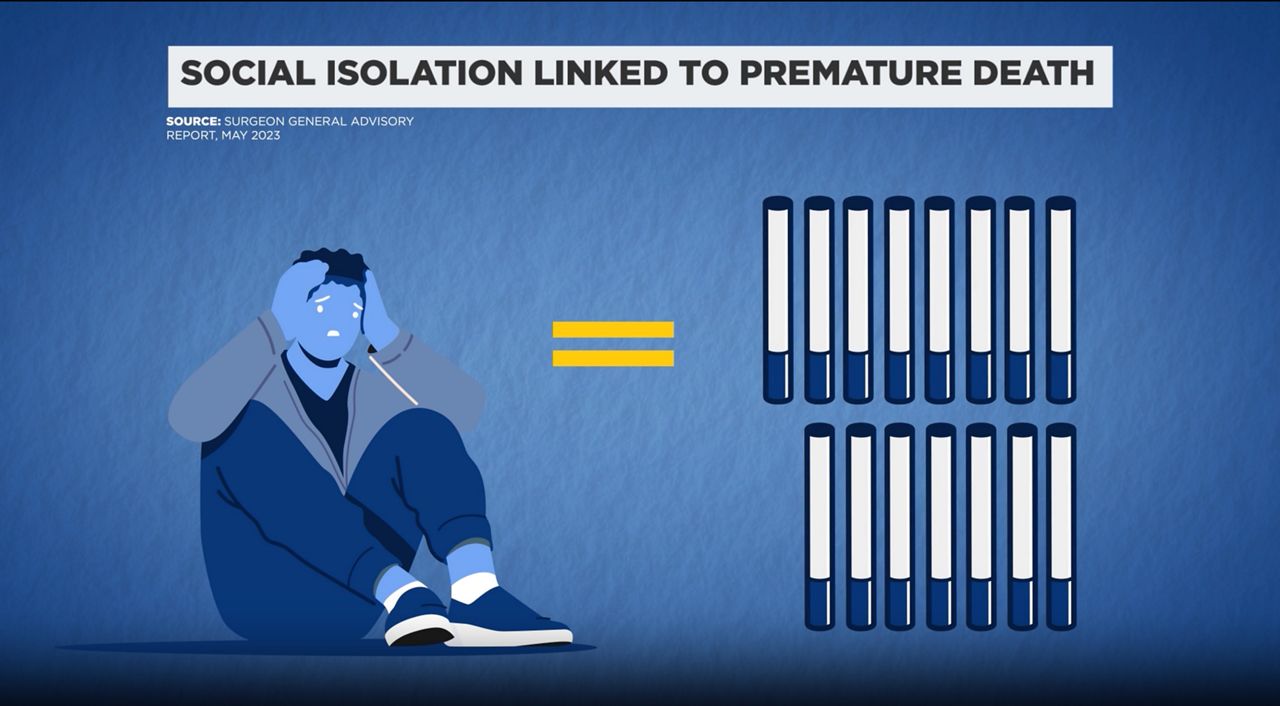
“Things like stroke, heart attack, all of these are actually compounded and put at higher risk by having social isolation and loneliness,” he explained.
Knopfelmacher says our social connections have been fracturing since the mid-1970s, when more people started moving further from family and friends. The COVID-19 pandemic further exacerbated the problem.
"Those who weren't living with someone else, they lost their work connections, they lost many of their social connections.
He says the increase in loneliness has persisted.
“We were so isolated for so long,” said Mallory. “We had no idea what was happening. And then, all of a sudden, we're spit up and thrown back into society. And we're all like, whoa. Then there's technology. We are so, we feel so safe behind our phones”
“The concept of meeting someone in person almost seems non-existent or fake because everything is social media these days,” said Tara.
But technology may also lead to meeting new friends – like when Mallory posted about her run club.
“Maybe some of the connection to our phones led to this problem,” said Knopfelmacher. “But this is maybe a way through our phones that we can address the problem.”
In addition to meetup groups based on shared interests – a number of apps have popped up in recent years that are focused specifically on helping people find friends.
“These apps that are setting up that are not for romantic connection but are for social connection, I think they're an indication of how much of a problem this has become,” Knopfelmacher said.
One of the apps is called Timeleft.
“Timeleft's mission is to enrich people's lives by fostering sincere human connections. In one sentence,” explained Aya Tohme, the app’s communications manager.
On Wednesdays, strangers in cities worldwide meet for dinner after being matched using Timeleft’s personality algorithm.
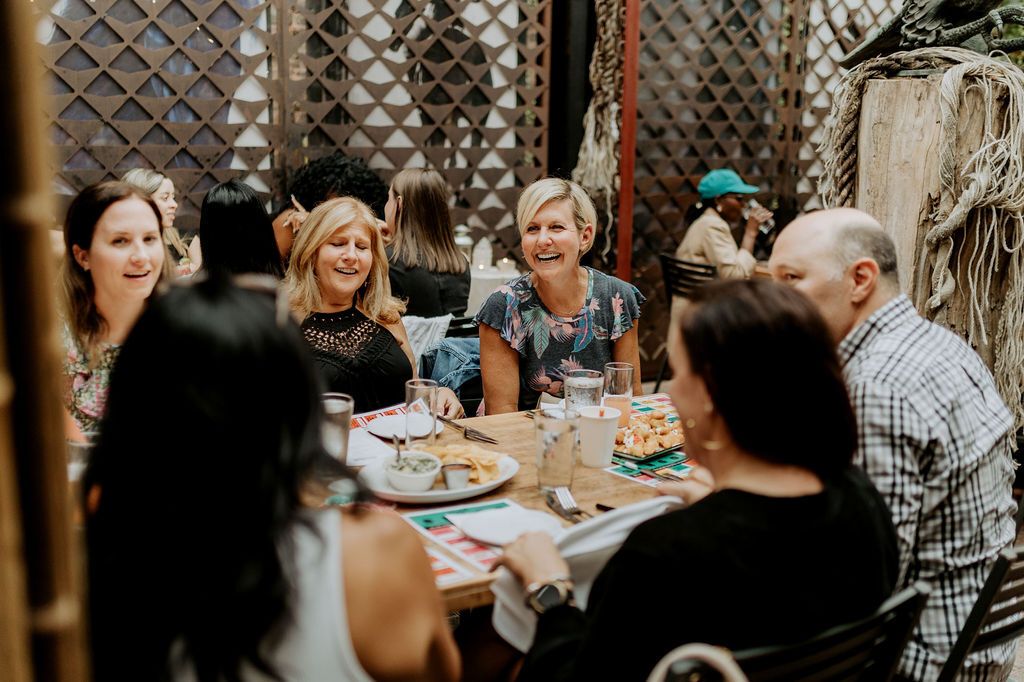
“I think that one thing that would make us different from any apps out there is, I always say, that we're doing the same thing, same product, same day, and for people going from 20 to 80 years old,” she said. “In Bangkok, in New York, in Paris, in Istanbul, in Dubai, everywhere in the world.”
Some use icebreaker questions provided by Timeleft to spark conversation. Other times, groups wing it.
“You don't know anything about the people that is going to be there and anything that's going to happen there,” said Tohme. “This is part of the magic of the experience.”
Meeting new people can be intimidating – like it was for Mallory. But, she says, it was well worth it.
“The people I have in the city are from my run club. Which is crazy, crazy to say,” Mallory reflected.
“You're not going to meet your people on the couch in your apartment, in your home. You're going to meet your people out in real life.”
Sometimes all that's needed is taking the first step.





